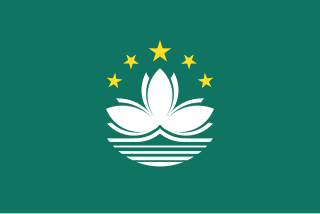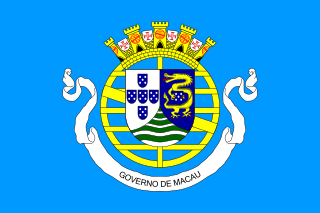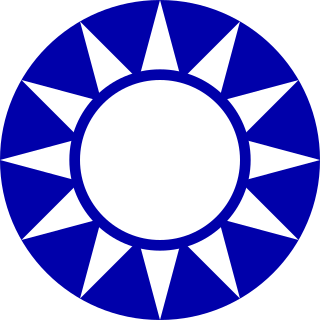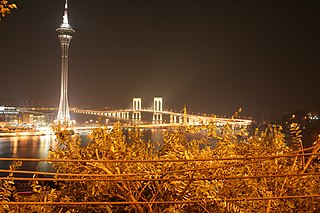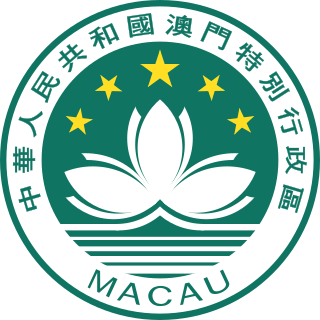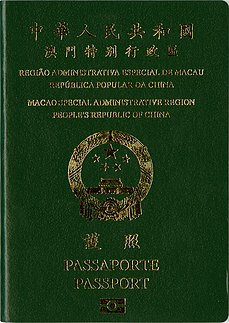Coordinates: 22°11′39″N113°32′59″E / 22.194237°N 113.549642°E

A geographic coordinate system is a coordinate system that enables every location on Earth to be specified by a set of numbers, letters or symbols. The coordinates are often chosen such that one of the numbers represents a vertical position and two or three of the numbers represent a horizontal position; alternatively, a geographic position may be expressed in a combined three-dimensional Cartesian vector. A common choice of coordinates is latitude, longitude and elevation. To specify a location on a plane requires a map projection.
Contents
| 中央人民政府駐澳門特別行政區聯絡辦公室 Gabinete de Ligação do Governo Central na Região Administrativa Especial de Macau | |
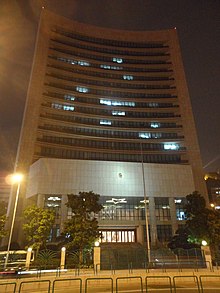 | |
| Agency overview | |
|---|---|
| Formed | 18 January 2000 |
| Preceding agency | |
| Jurisdiction | |
| Agency executive |
|
| Website | zlb.gov.cn (in Chinese) |
Liaison Office in Macau officially known as the Central People's Government Liaison Office of the Macao Special Administrative Region (Chinese :中央人民政府駐澳門特別行政區聯絡辦公室 (abbreviated: Chinese :聯絡辦公室); Portuguese: Gabinete de Ligação do Governo Central na RAEM) is the representative office of the State Council of the People's Republic of China (CPG) in Macau. [1] Its counterpart body in Mainland China is the Office of the Macau Special Administrative Region in Beijing.

Chinese is a group of related, but in many cases not mutually intelligible, language varieties, forming the Sinitic branch of the Sino-Tibetan language family. Chinese is spoken by the ethnic Chinese majority and many minority ethnic groups in China. About 1.2 billion people speak some form of Chinese as their first language.
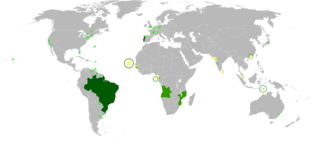
Portuguese is a Western Romance language originating in the Iberian Peninsula. It is the sole official language of Portugal, Brazil, Cape Verde, Guinea-Bissau, Mozambique, Angola, and São Tomé and Príncipe. It also has co-official language status in East Timor, Equatorial Guinea and Macau in China. As the result of expansion during colonial times, a cultural presence of Portuguese and Portuguese creole speakers are also found in Goa, Daman and Diu in India; in Batticaloa on the east coast of Sri Lanka; in the Indonesian island of Flores; in the Malacca state of Malaysia; and the ABC islands in the Caribbean where Papiamento is spoken, while Cape Verdean Creole is the most widely spoken Portuguese-based Creole. Reintegrationists maintain that Galician is not a separate language, but a dialect of Portuguese. A Portuguese-speaking person or nation is referred to as "Lusophone" (Lusófono).

The State Council, constitutionally synonymous with the Central People's Government since 1954, is the chief administrative authority of the People's Republic of China. It is chaired by the premier and includes the heads of each of the cabinet-level executive departments. Currently, the council has 35 members: the premier, one executive vice premier, three other vice premiers, five state councilors, and 25 additional ministers and chairs of major agencies. In the politics of the People's Republic of China, the Central People's Government forms one of three interlocking branches of power, the others being the Communist Party of China and the People's Liberation Army. The State Council directly oversees the various subordinate People's Governments in the provinces, and in practice maintains membership with the top levels of the Communist Party of China.
It is one of the three agencies of the Central People's Government in the Macao Special Administrative Region. The other two are the Office of the Commissioner of the Ministry of Foreign Affairs of the People's Republic of China in the Macao Special Administrative Region and the People's Liberation Army Macau Garrison.

The Office of the Commissioner of the Ministry of Foreign Affairs of the People's Republic of China in the Macao Special Administrative Region is an subordinated office of the Ministry of Foreign Affairs of the People's Republic of China established in accordance with the provisions of the Basic Law of Macau. It is responsible for dealing with foreign affairs related to the territory. The building is located at Sé.

